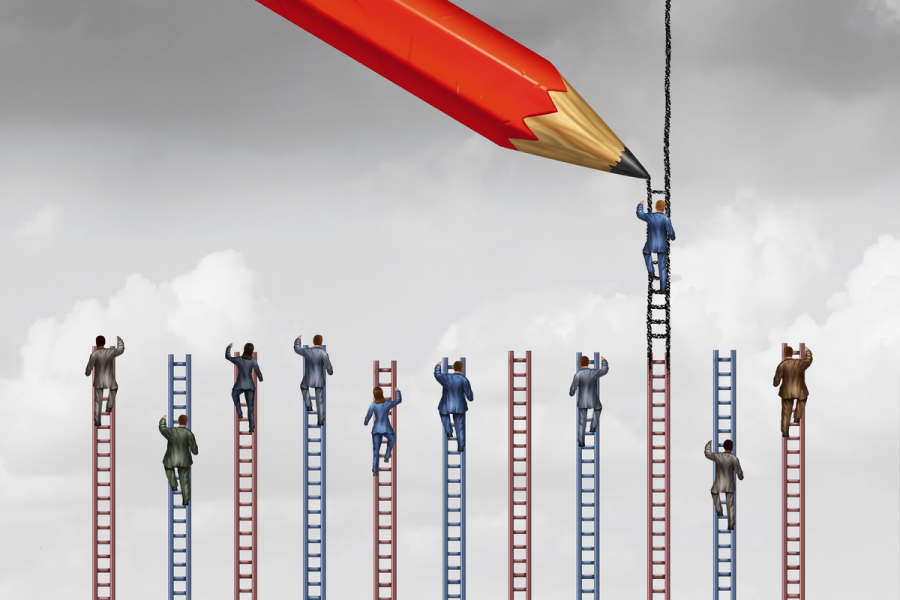Columns
A pandemic of apathy: How our MPs failed to address Covid-19
It's our great misfortune that the ones in power continue to protect their own interests.
Madhukar Upadhya
A fairly innocent question keeps nagging me during lockdown these days: whom do I ask about getting the second dose of my Covid-19 vaccine? Do I ask the government officials responsible for managing and administering the doses or do I contact the Member of Parliament I voted for who is responsible for making policies to serve my needs and represent my interests? This question probably resonates with the other 1.3 million senior citizens also awaiting their second dose.
The country is barely coping with the deadly second wave of the novel coronavirus. The number of cases escalated so quickly that our health facilities are currently on the brink of collapse, desperately trying to provide basic care to patients. Some of these patients are being treated on the floor and in the hallways of hospitals. Hospital beds are in such short supply that those who don't require oxygen are advised to remain home. The supply of oxygen is nowhere near its actual demand. In April, the lack of vaccines led the government to momentarily halt its vaccination campaign.
Many noted the juxtaposition of lawmakers, including former ones, and their families queuing up to get vaccinated recently during a time when more than a million senior citizens are still waiting for their second dose. With no vaccines in stock and uncertain imports, sadly, lawmakers were in a hurry to secure enough vaccines for themselves and their relatives instead of ensuring vaccines for the very citizens they represent.
Representatives prioritising their own needs over those of their constituents, unfortunately, is a tale as old as time. For instance, recall the aftermath of the 2015 earthquake when tents were supplied to people in power and those connected to them, while citizens were living under tarps even a year after the quake. Even during fuel shortages, which we experience every so often, ordinary people spend hours in a queue to get a rationed quota of petrol or, during particularly acute shortages, are forced to buy it on the black market. Meanwhile, people from power centres can secure their needs without having to wait in line.
Times of crises serve as a litmus test for a leader's strength of character. Will they ensure fair and equitable aid for those in need or will they cut in line to serve themselves before anyone else? It's our great misfortune that the ones in power or those close to power centres continue to protect their own interests during times of crisis. After all, democracy is the rule of the people, where citizens are the masters and the representatives are public servants. These citizens expect their elected representatives to ensure their welfare especially during harrowing events like global pandemics. Moreover, we elect MPs to solve our problems, not to create a new class of nobles. Private citizens cannot be blamed for becoming disillusioned with democracy itself when they're effectively abandoned by those they voted for and the state.
Role of parliament
The role of the parliament is not limited to making laws; it's also responsible for ensuring that the right policies are formulated and implemented to address the problems facing the country. Parliament is the vital link between citizens and the state. Unlike the government, which makes plans for a fixed period, legislators need to be prudent and more vigilant when assessing any situation, before making policies. If representatives fail to function to the tune of peoples’ needs, voters need to steer them in the right direction—which is only possible through discussions and debates among parliamentarians and between citizens and their MPs.
Unfortunately, we haven't seen any discussions in the House about Covid-19. Even when the House isn’t in session, members could've summoned a special session to discuss the ongoing crisis and directed the government to take the necessary steps to ease the stress on our public health system and individuals. It never happened.
The current crisis is too serious to be left to the hands of healthcare workers or a ministry of the government alone. Healthcare workers are there to treat patients, not manage oxygen or add beds and ventilators. Unfortunately, doctors in Nepal are forced to work long days and perform multiple tasks to help Covid-19 patients, which they can only do to a certain extent before they exhaust themselves. Therefore, addressing a crisis like this requires mechanisms capable of garnering support from all possible sources from within and without through a wartime approach.
What can MPs do?
The people’s representatives have the capability to rally people for better cooperation and mobilise assets including managing policy inconsistencies. They have unfettered access to information and resources, domestic and international. They can establish a more transparent line of communication with their constituents, provide more institutional support, and establish a mechanism to consult experts and agencies and identify implementation gaps or overlaps to strengthen our current systems. Sadly, our MPs are content to sit back and serve their petty interests.
These opportunities are wasted by almost all our MPs, barring a few who are equipped with the relevant information and have a working plan. Even the parliamentary committees that are supposed to oversee the state of affairs haven't shouldered the responsibility of coming up with a plan despite the resources at their disposal. The committees also can mobilise citizens, as they have occasionally done for pre-budget discussions, to discuss how we, as a society, can address a problem as grave as the pandemic. Unfortunately, these committees are seen giving directives and never following up on the subject to see if those directives have been complied with. Neglecting these functions reinforces the lack of ‘checks and balances’.
This is not the first crisis we've faced nor will it be the last one. People anticipate further waves of the virus in the days and months ahead. Our MPs need to take full advantage of the powers vested in them by the office they're elected to in order to create ethical, equitable policies to help our country from going over the inevitable humanitarian crisis we're hurtling towards. They need to be better prepared to assess the possibility of such eventualities and mobilise everything under their jurisdiction to formulate effective policies, connect with citizens, establish mechanisms to implement these policies, and assure their constituents that they're there to help cope with the inevitable—and prove that democracy indeed is of the people, by the people, and most importantly, for the people.




 13.12°C Kathmandu
13.12°C Kathmandu















